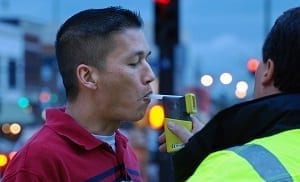Many transport organisations view breathalyser testing to be a chore rather than something beneficial, as an added expense and a waste of time.
However, the reality is that by possibly permitting drunk drivers on the road, they could be incurring significant damage to their own vehicle assets as the result of accidents, not to mention the loss of human life that could occur. In addition, drunk drivers tend to be erratic, driving at inconsistent speeds and leaning heavily on the brakes, which incurs additional daily wear and tear. Furthermore, by enforcing testing transport companies can benefit from reduced absenteeism as well as fewer late deliveries.In addition to compulsory testing when drivers enter the premises and when they return from deliveries, transport companies should also augment this with educational programmes.
Education on the dangers of alcohol consumption, and of driving under the influence, and practical examples of the devastating consequences that drunken driving can have, will all help to reduce the number of fatalities. Transport companies should also educate employees as to how they can drink safely, without being in danger of alcoholism or of contravening the laws around enforceable limits for professional drivers. Ultimately, however, while transport companies need to play their part, it is essential for regulations to be put into place to enforce this zero tolerance approach. This must be driven by the government, as by putting these practices into law and performing regular audits of companies, it will be possible to drastically reduce the number of road deaths and injuries in South Africa.






